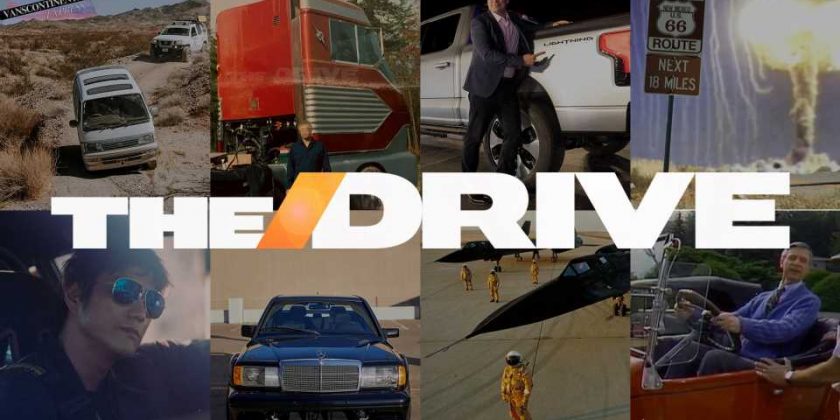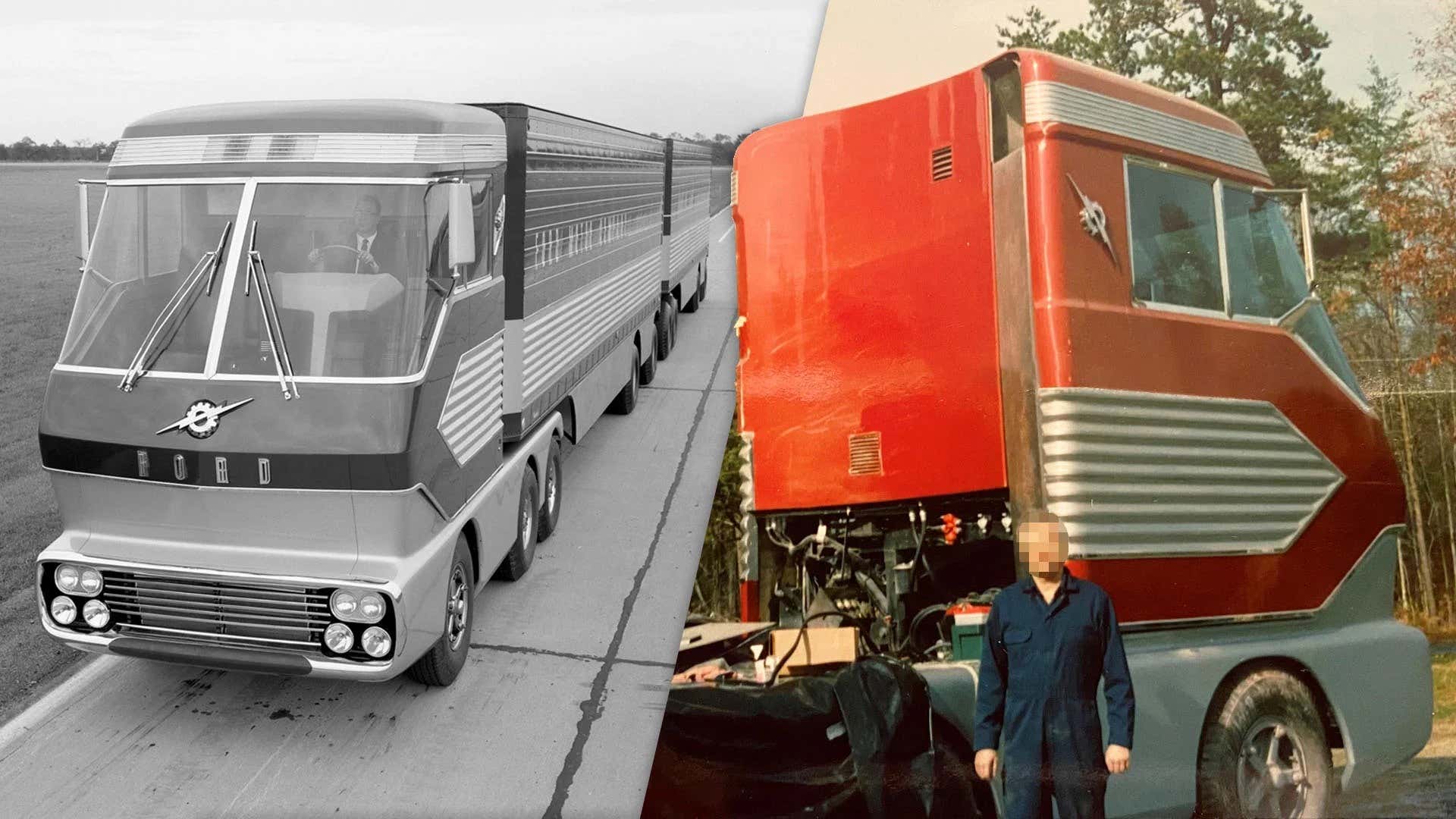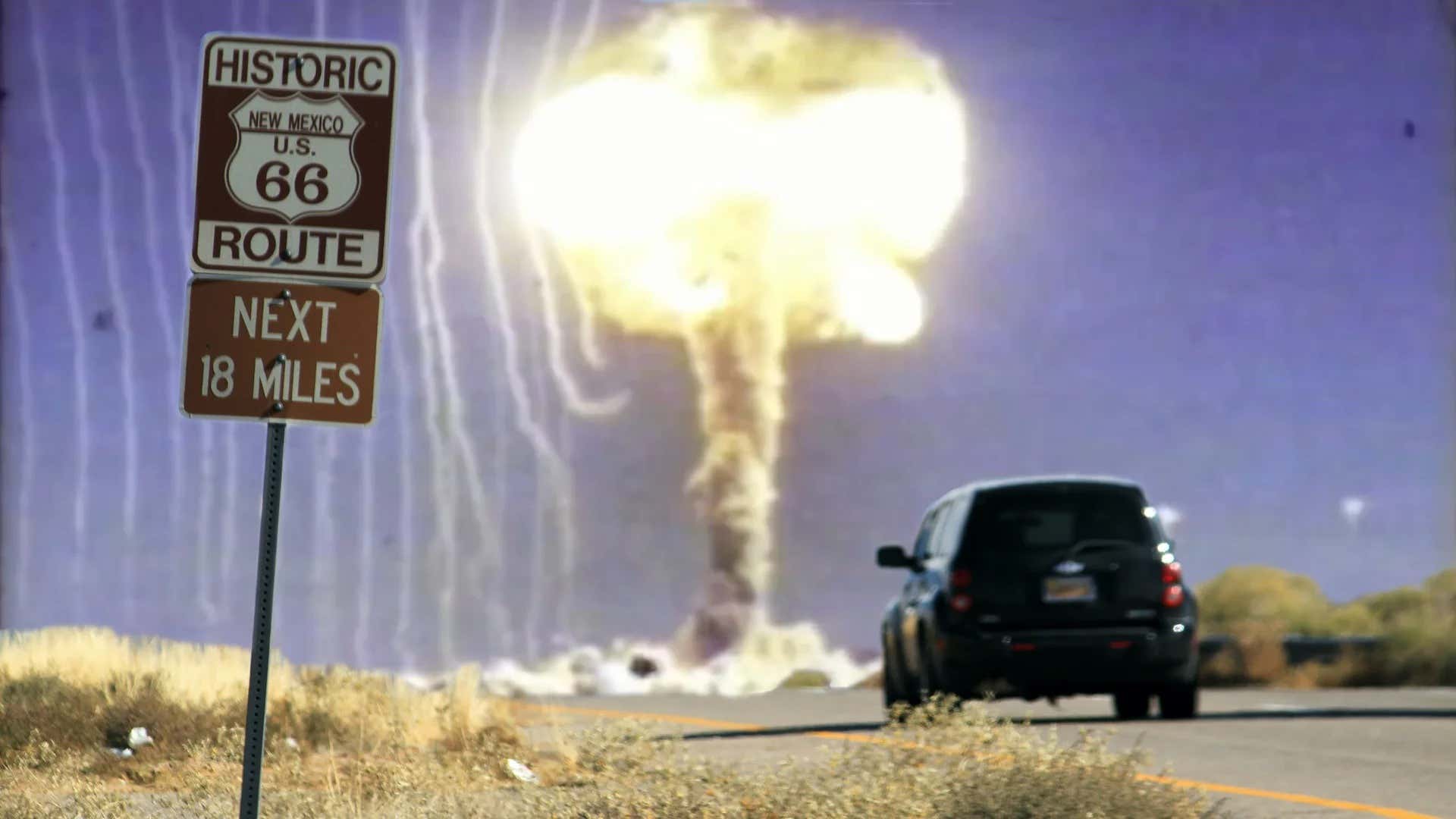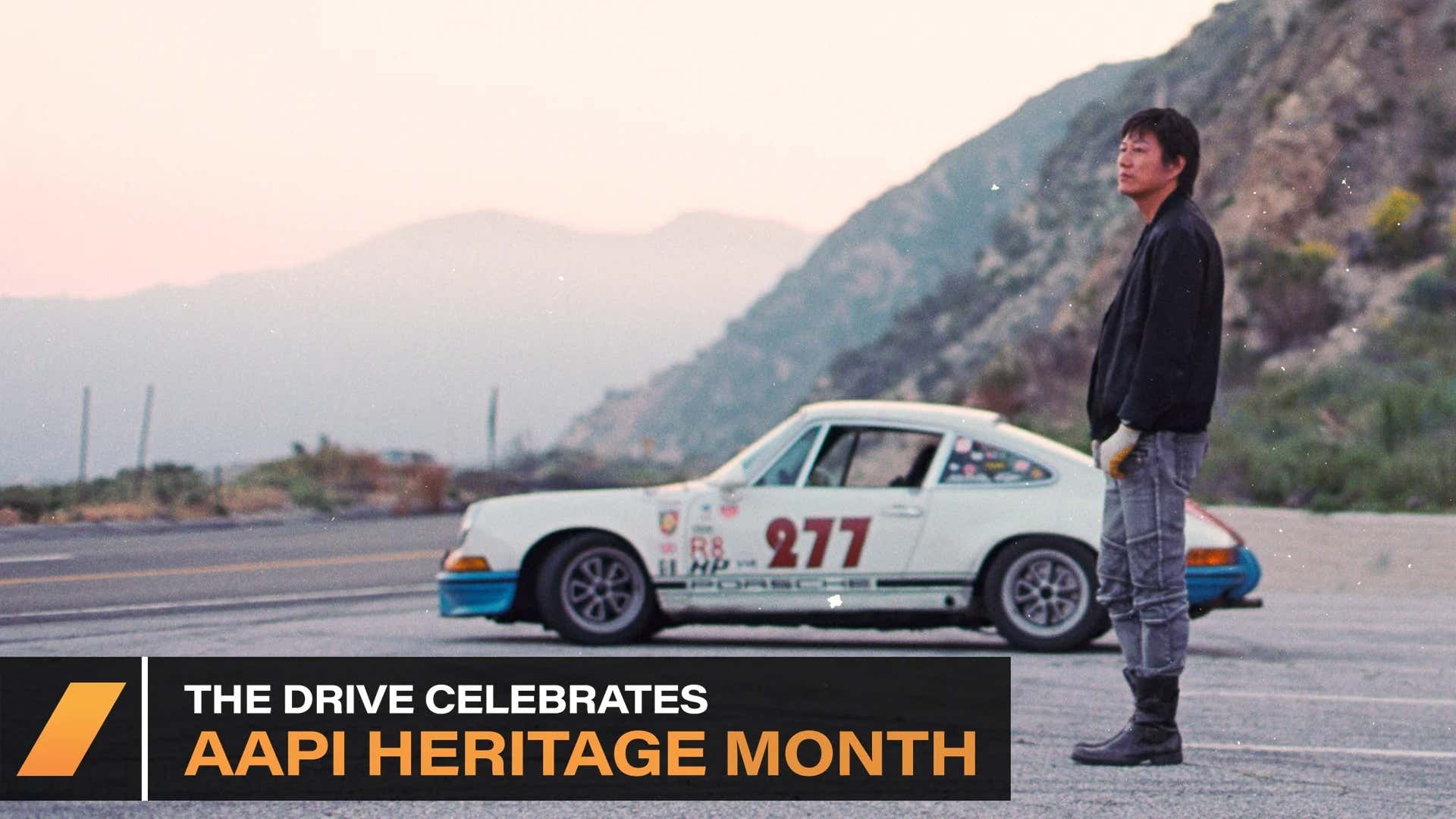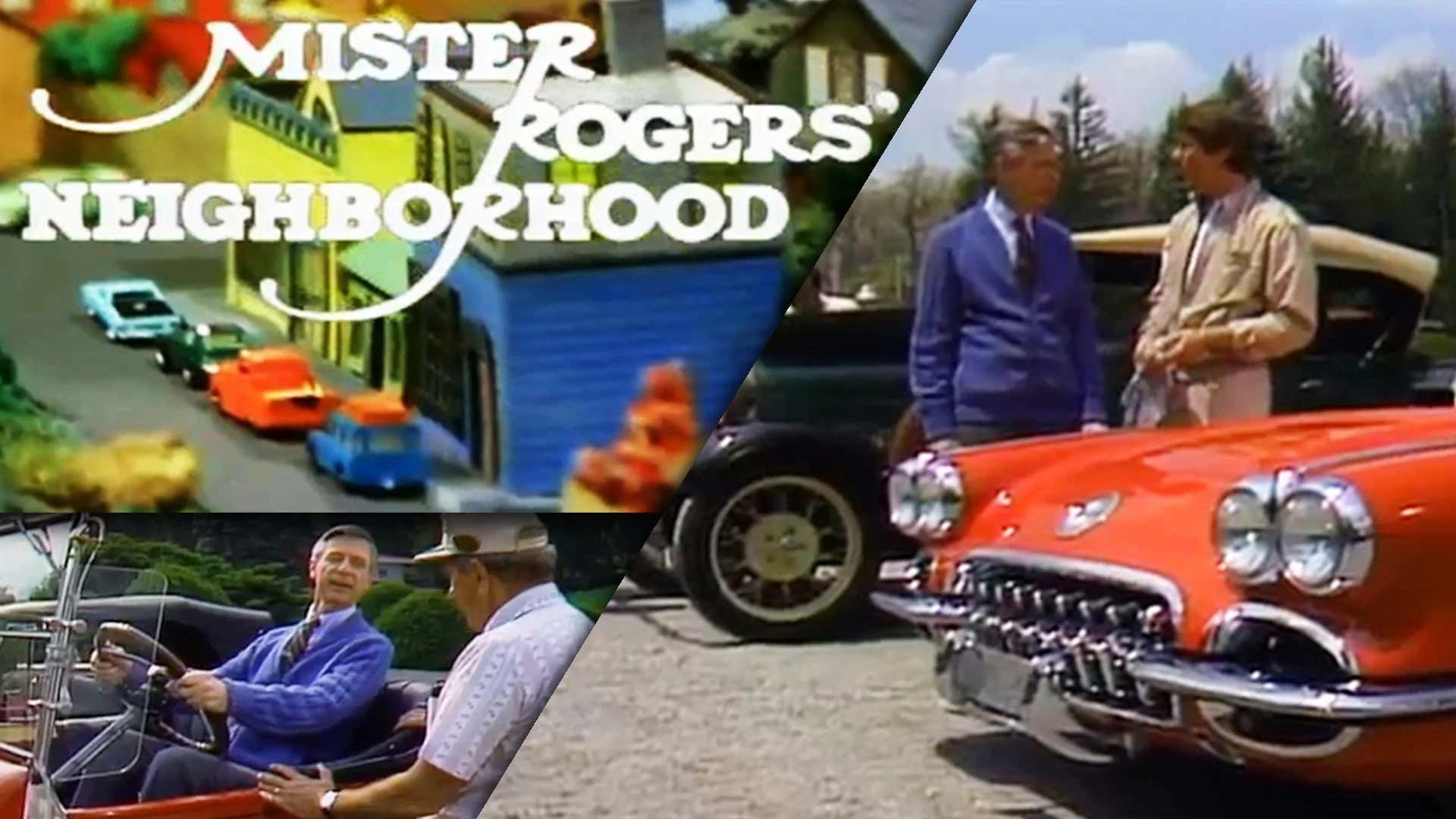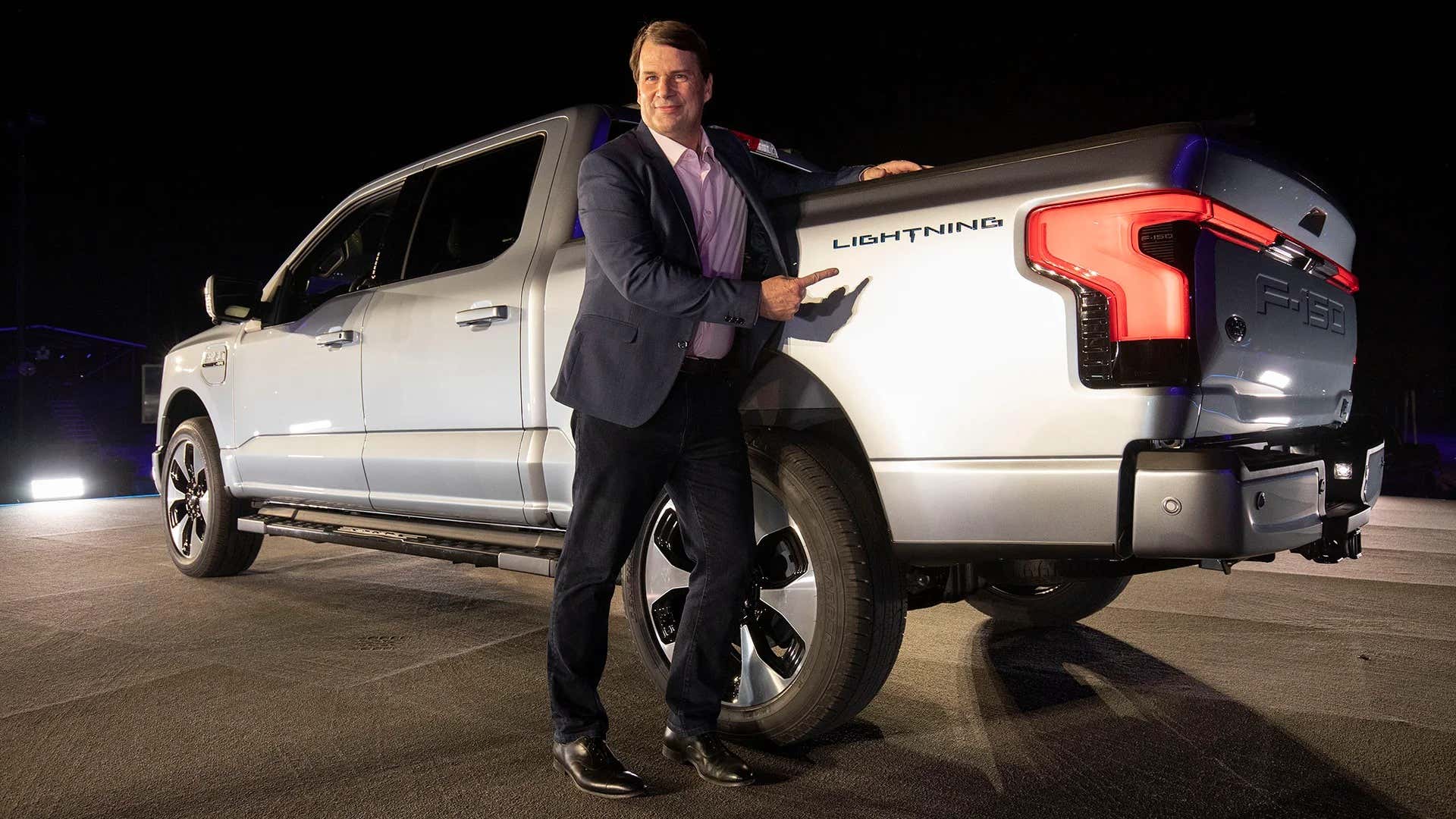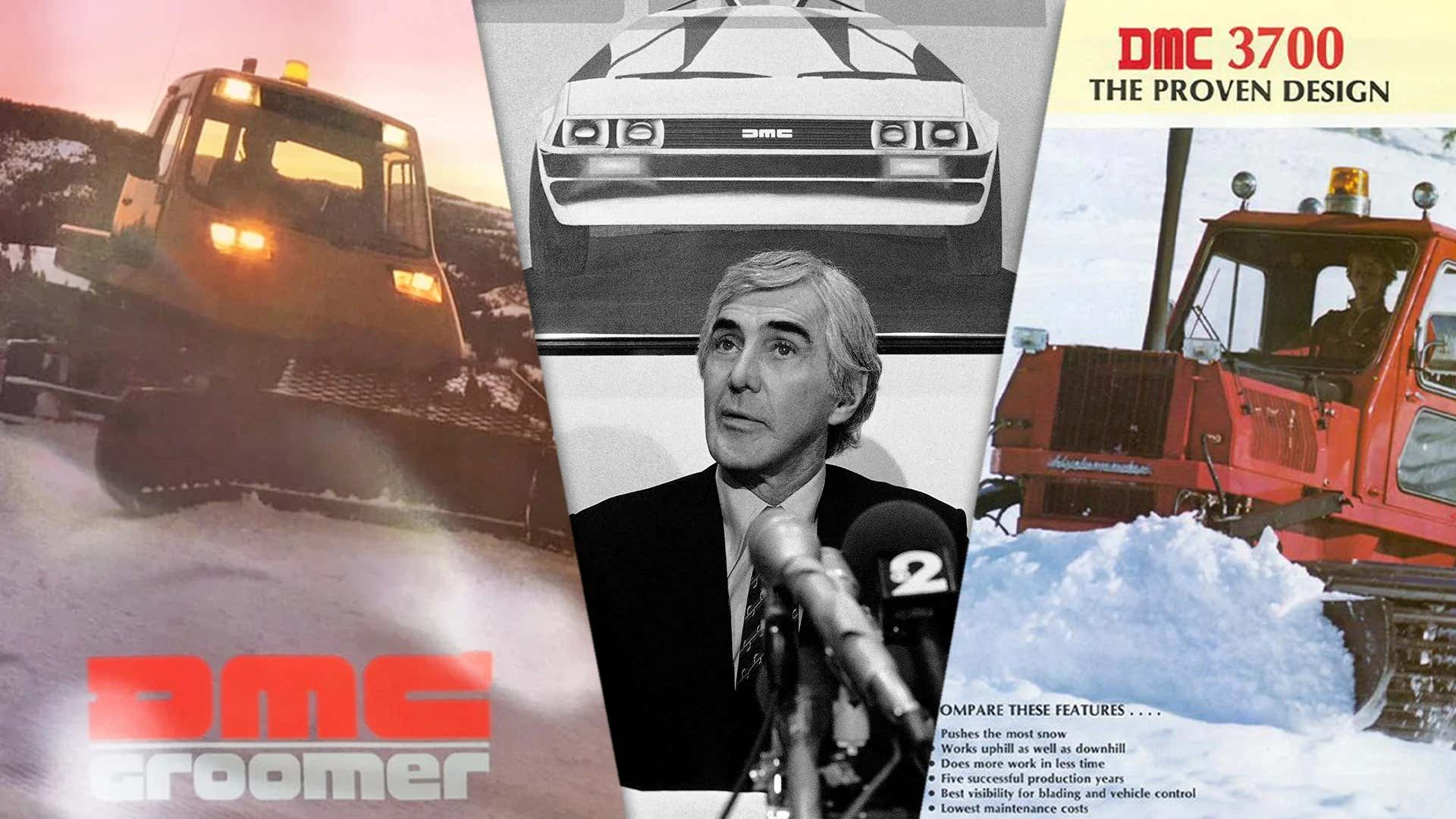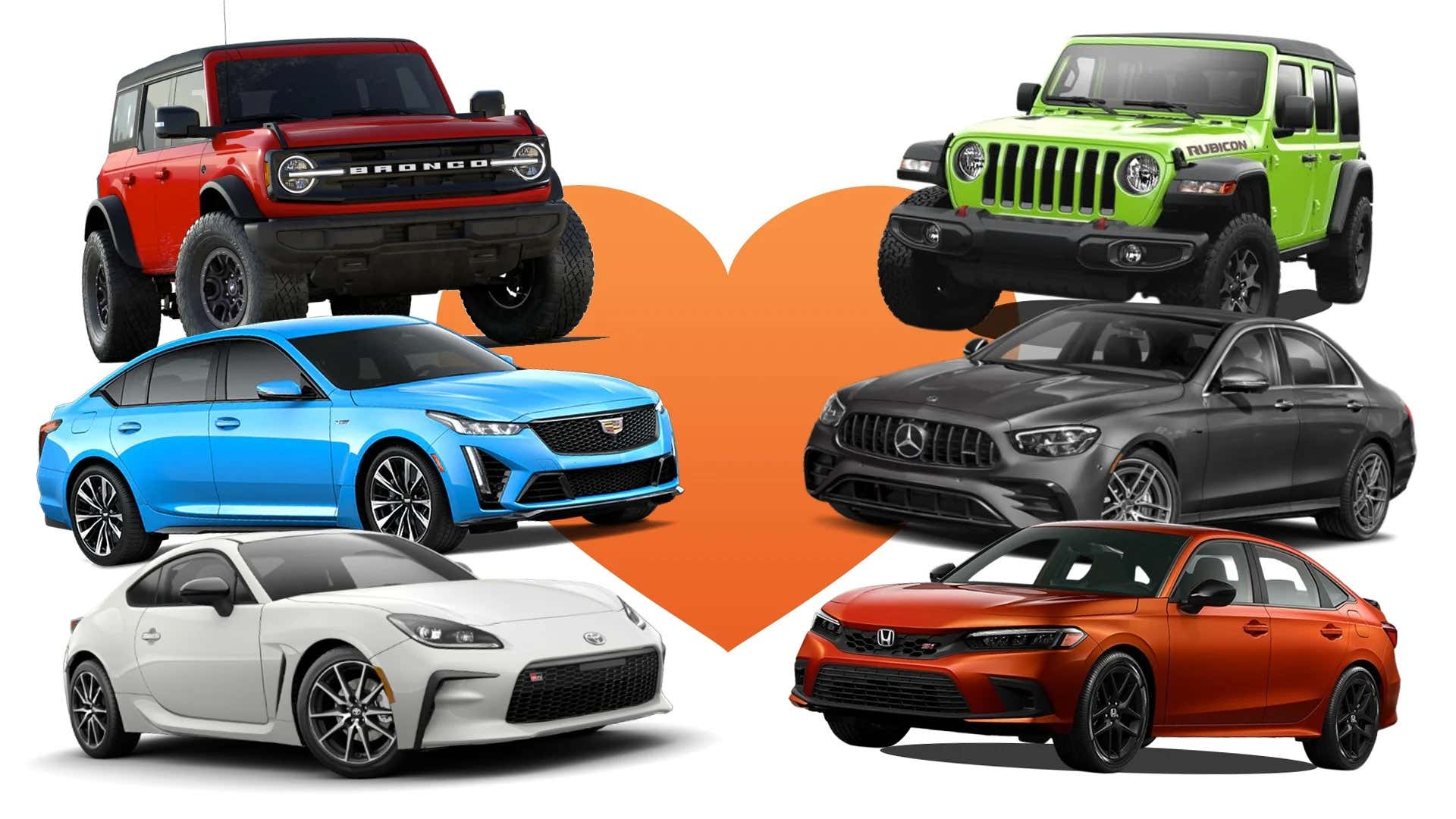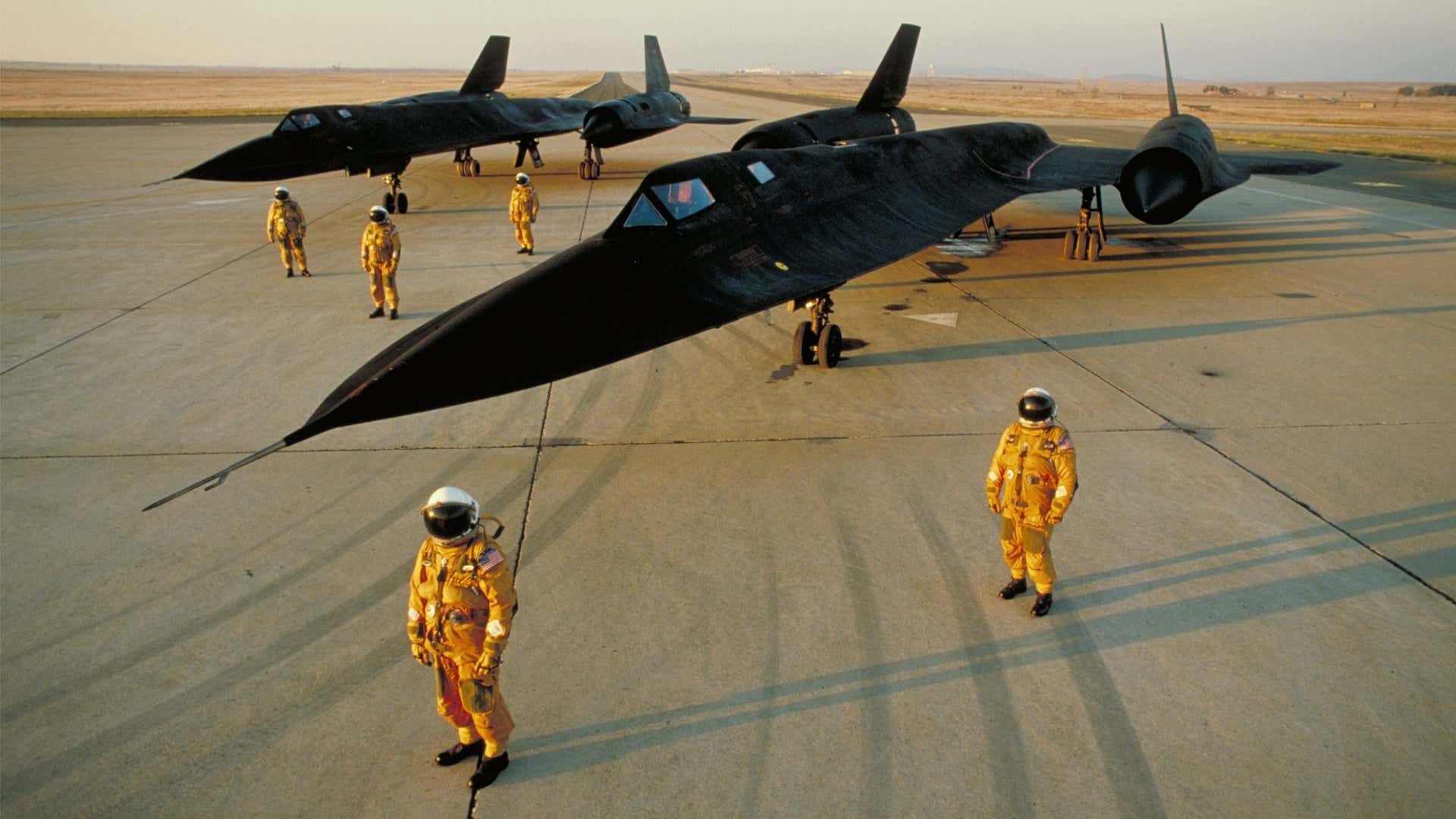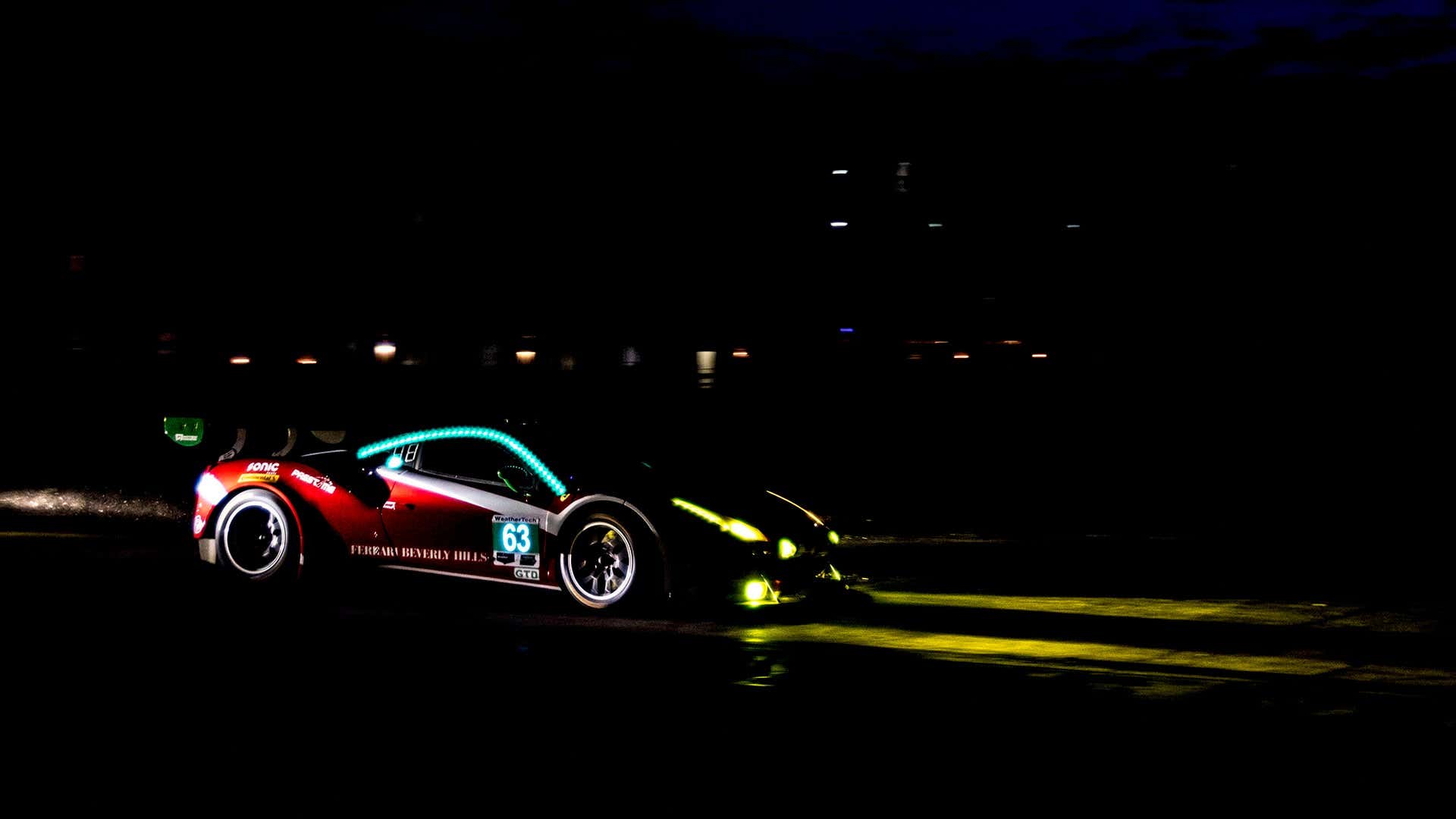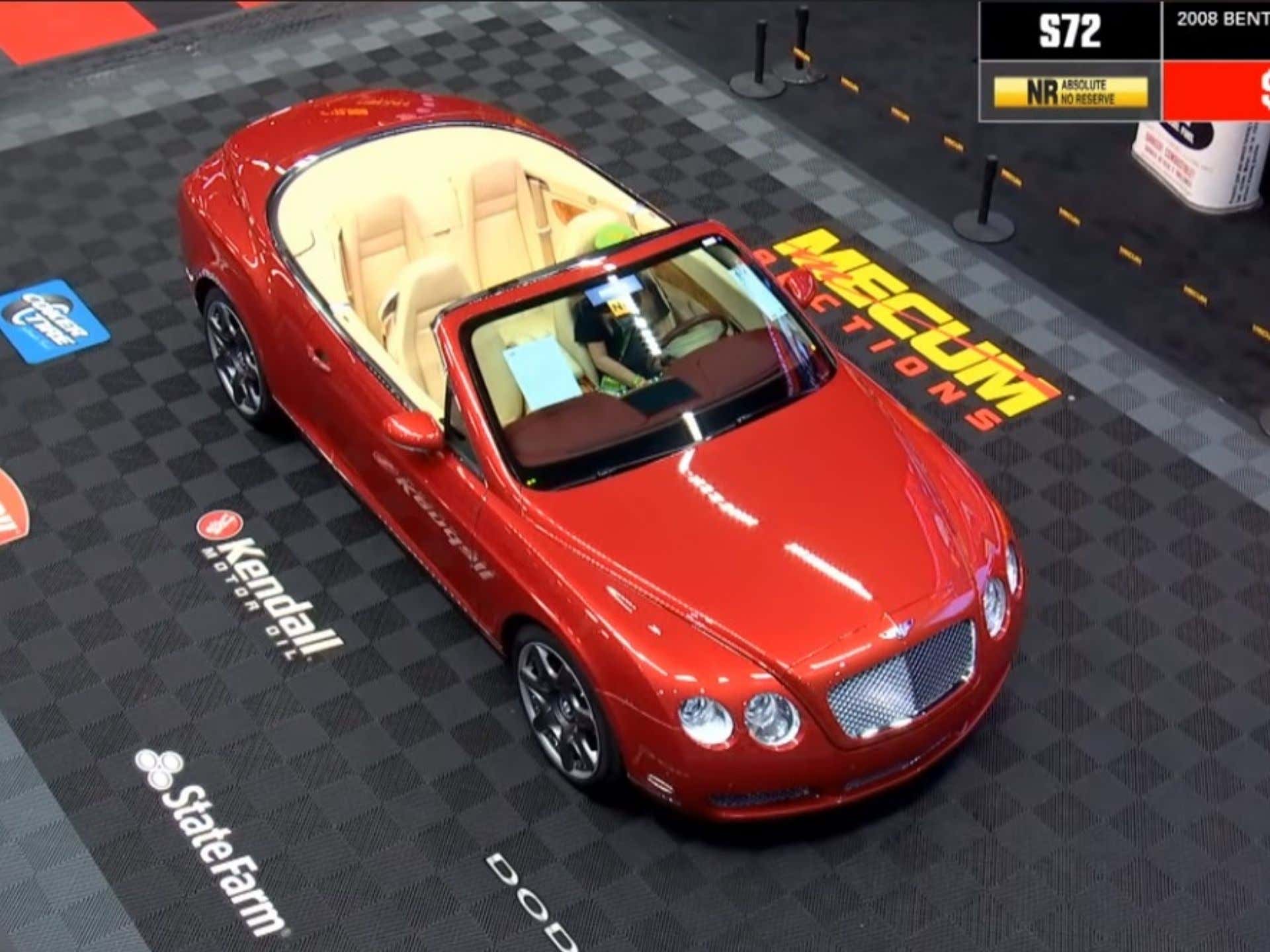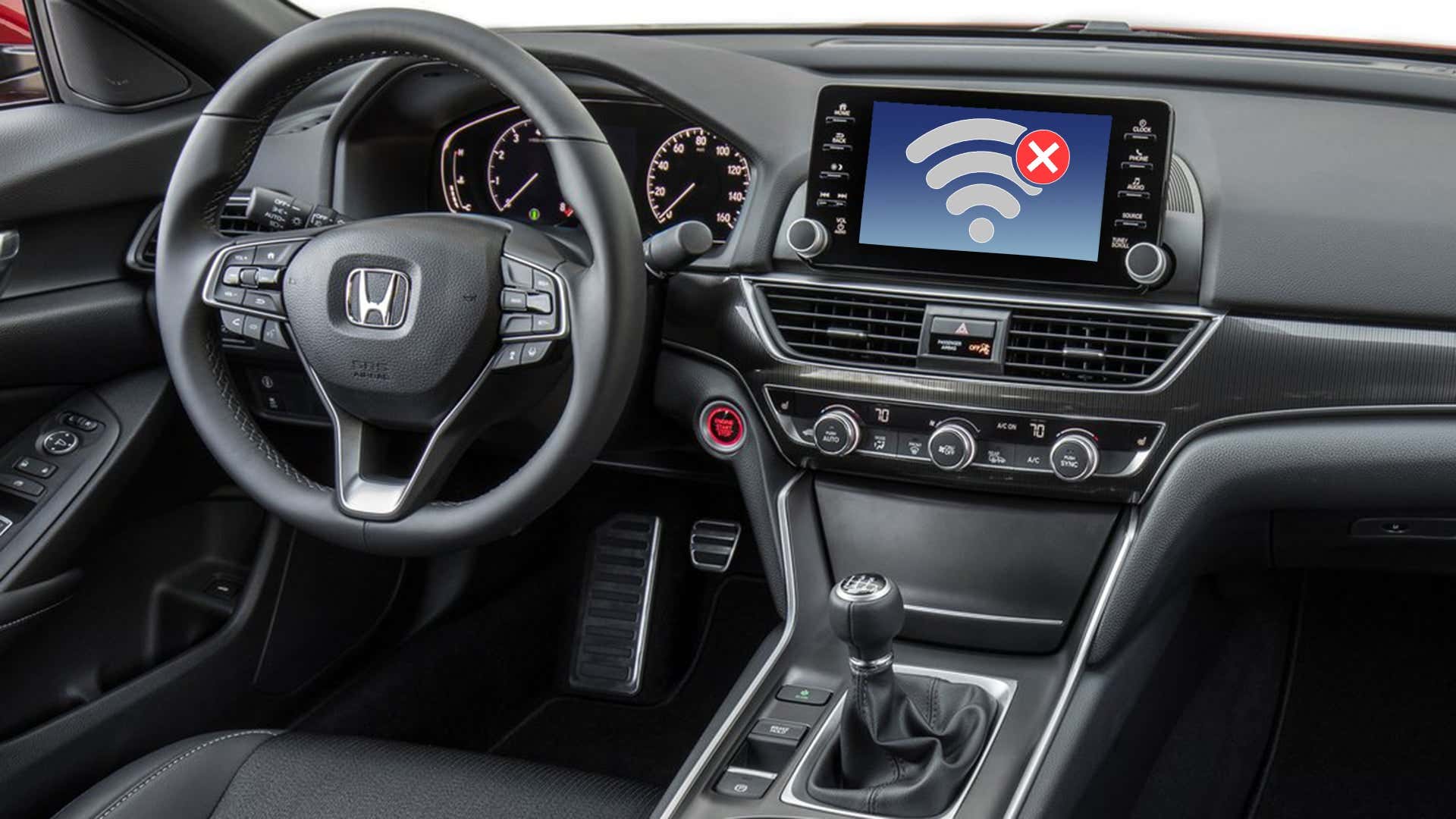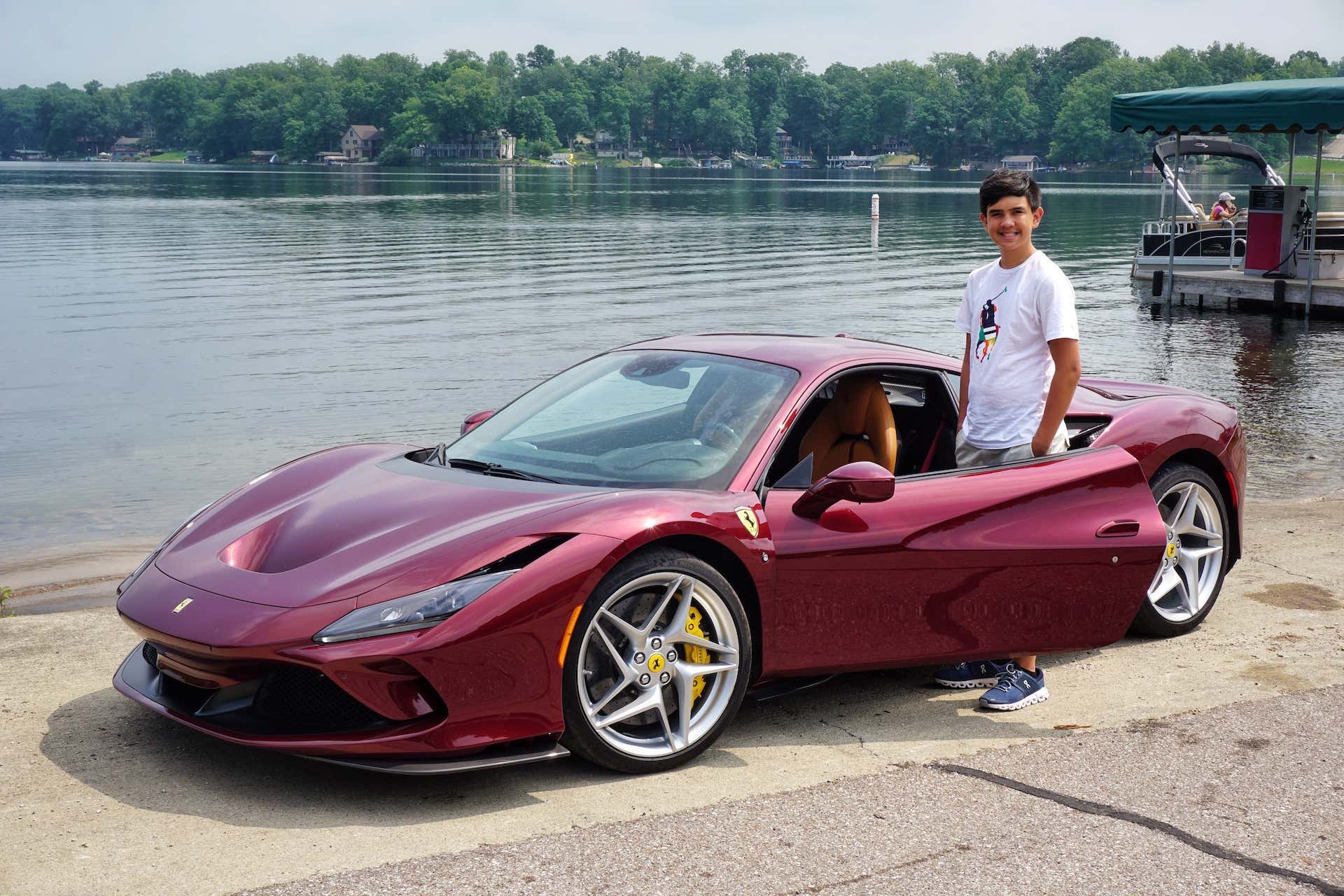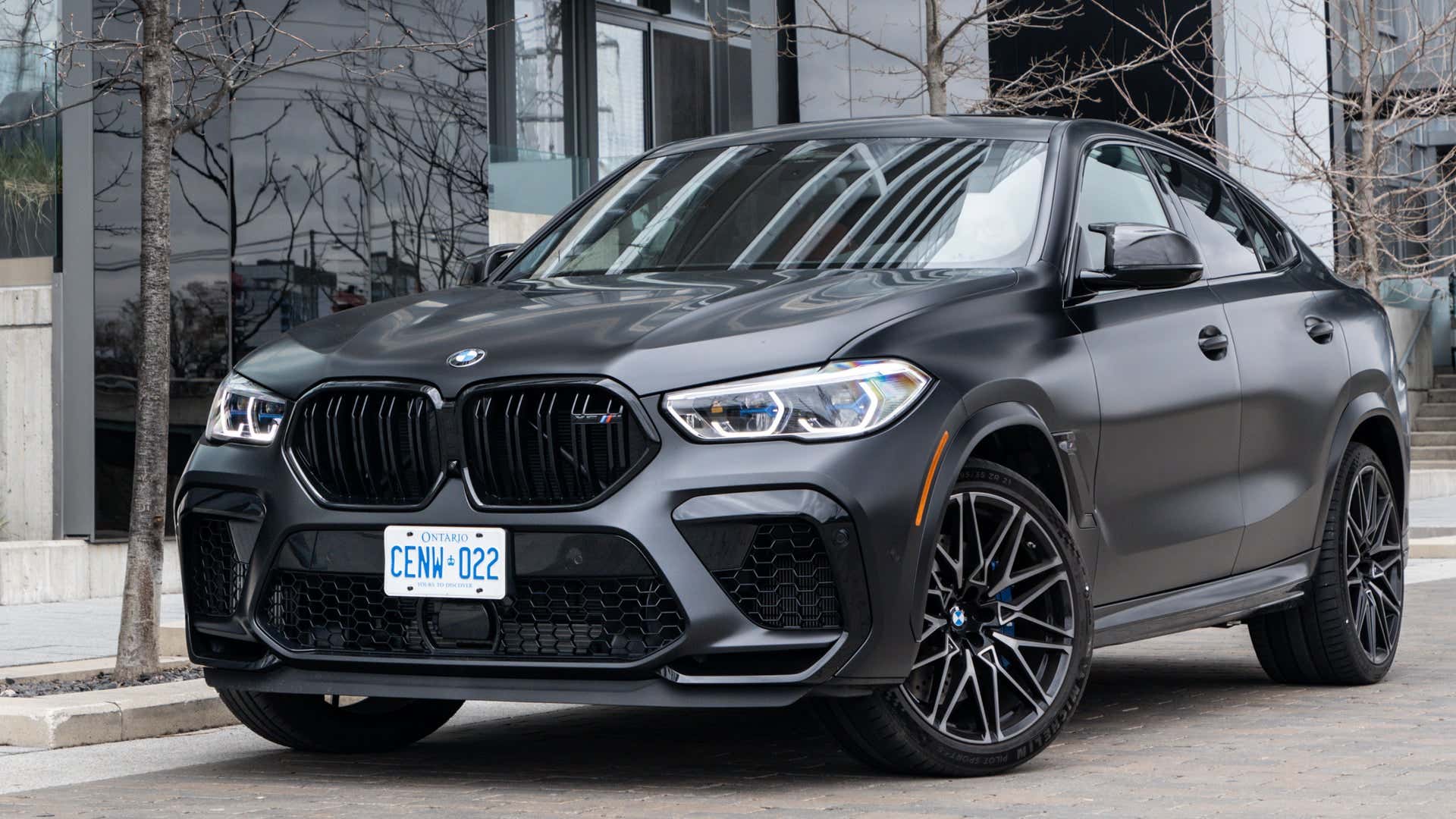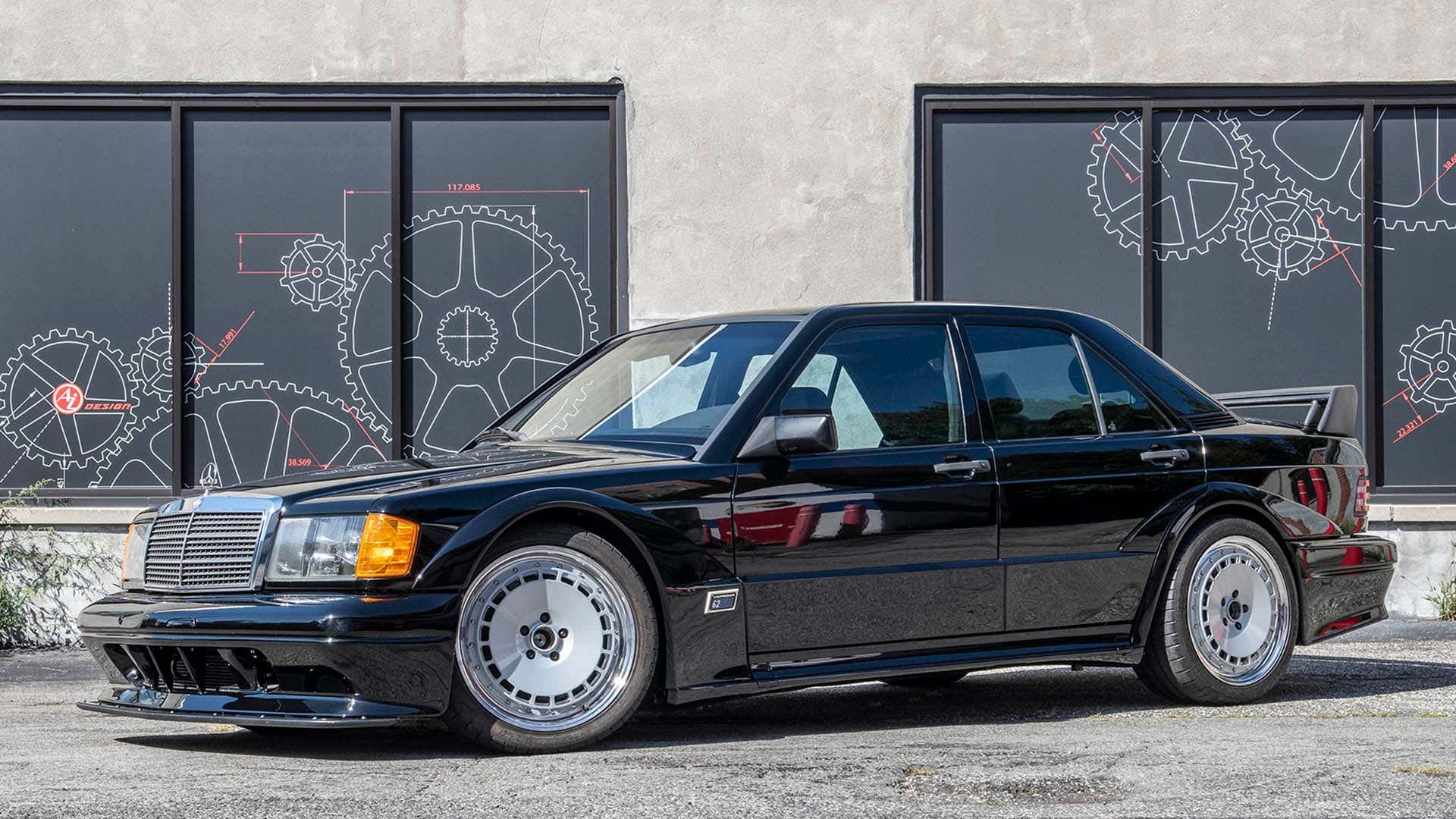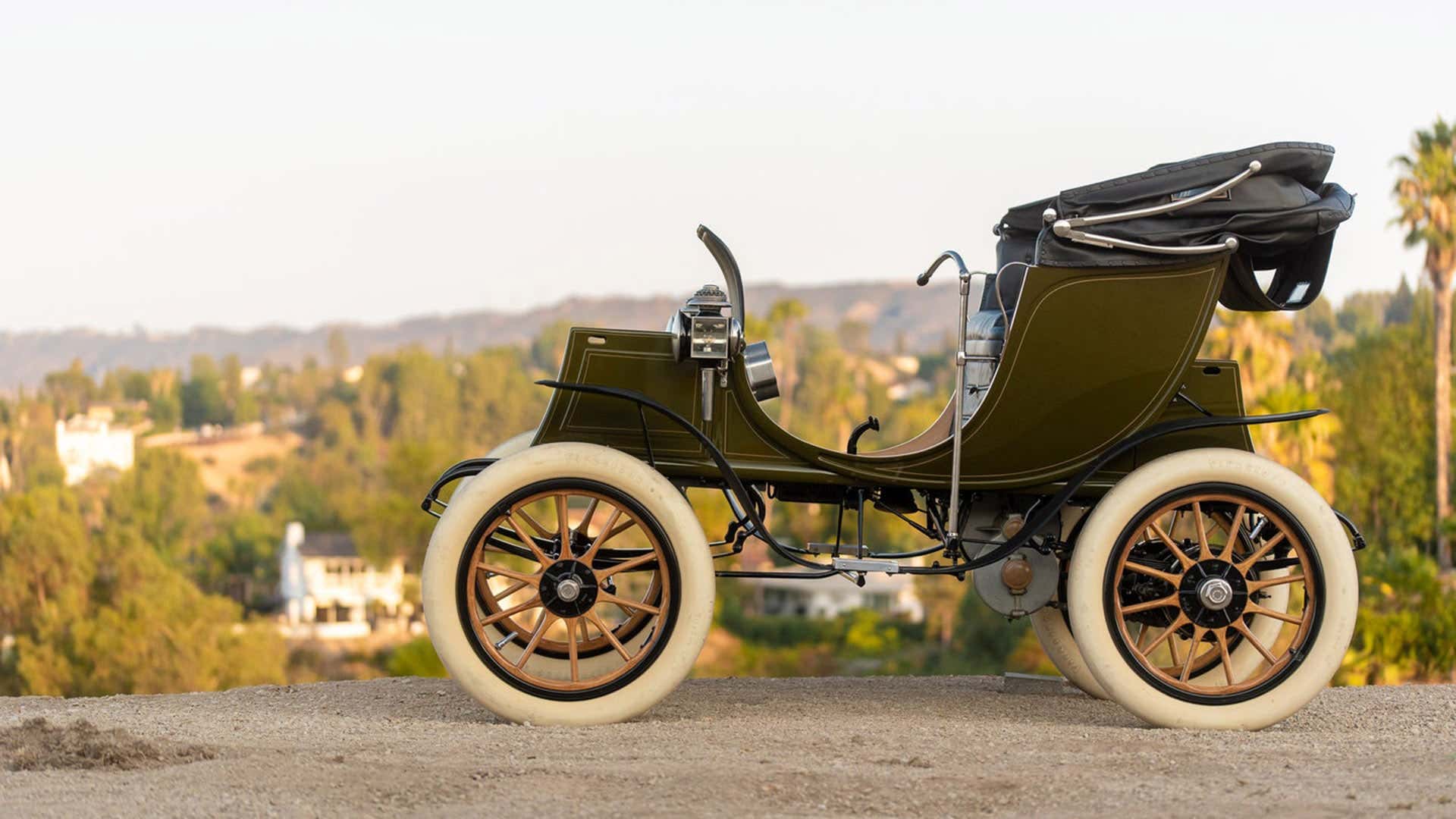The four horsemen of the apocalypse symbolize conquest, war, famine and death, and it’s safe to say they all took their shots in 2021. It was not a good year for planet Earth or humanity in general—but amid the chaos, countless little victories were seeded and sown by millions of you out there. Maybe you reconnected with a loved one this year, made up for lost time. Maybe you finally changed your own oil, or started living your own truth. Or maybe you just got through the year a little worse for wear, which hey, that is no small thing.
Looking back, I felt that way at first, like the totality of my experience the past 365 days could be summed up with “I survived.” But The Drive? This place absolutely thrived, growing into a journalistic powerhouse and standing tall as one of the largest automotive sites in the country with average of 20 million pageviews a month. If you’re a regular reader, you know we strive to deliver a singular mix of breaking auto industry news, car culture coverage, investigative reporting, whip-smart analysis and comprehensive new car reviews. I think we delivered on that promise last year across the thousands of stories we published; this place is an extension of me as its editor-in-chief, and so I guess my 2021 wasn’t too bad after all.
To wit: we spotlighted a massive fraud case at a Southern California exotic car dealer; got to the bottom of why VW won’t sell its camper vans in America; interviewed the CEO of Ford; reviewed a 1939 GM Futurliner and an EV from 1908; explained how the upcoming 3G sunset could screw your car; examined a long-forgotten 1960s plan to build a new Route 66 with nukes; drove everything from the GMC Hummer EV to a Bugatti Chiron; took a look at a pristine GM EV1 being saved by a secretive caretaker; hung out with Sung Kang; broke news like Toyota’s key fob remote start subscription plan and the SSC Tuatara getting wrecked in a carrier crash; surprised even Elon Musk with a story about Tesla tangling with Texas dealership laws; and right, we found Big Red.
Above all, my goal here to give you stories you’re not going to find anywhere else. That is what separates The Drive at this critical moment for enthusiasts and car culture at large: We are unafraid to push the limits of what an automotive site can be. We are a place where the conversations about today and tomorrow begin, with fresh voices and original ideas. And we are mighty glad to have you here with us. Before we get into what’s in store in 2022, let’s take a minute to appreciate what that means exactly with this roundup of The Drive’s best stories of 2021. Click or tap the headlines to open them.
We Found Ford’s Incredible Turbine-Powered Semi-Truck ‘Big Red’ That’s Been Lost for Decades – Peter Holderith
“Several months ago, we set out to catch a ghost. First seen at the 1964 World’s Fair alongside a fun new car called the Mustang, Ford’s ‘Big Red’ was the automaker’s experimental gas turbine semi-truck, a moonshot experiment built to lift American motoring into the jet age. Thirteen feet tall, nearly 100 feet long with its tandem trailers, packed with truly futuristic features and powered by a monster 600-horsepower turbine engine, the fully-functional prototype was a wonder to behold. It wowed fair attendees and captured the imaginations of thousands on a cross-country promotional tour that followed. Then, it was mothballed when turbine technology didn’t add up. It changed hands by chance, people lost interest, and years after the 10-ton fire-breather barreled down America’s highways, it vanished.
Though it seems like it’d be pretty tough to hide, Big Red’s been missing since the early 1980s. It’s perhaps one of the most significant pieces of automotive history to drop off the face of the earth. Ford itself had no idea what happened to it. But now, we do—after months of searching, after our initial investigation last fall got us closer than anyone had been in decades, the hunt is finally over. We’ve found Big Red. And we can confirm not only that the truck still exists, but that it’s been painstakingly restored—working turbine and all—to its former glory by its exceedingly private and equally dedicated owner.” [Link]
America Almost Made a New Route 66 With 22 Nuclear Bombs – James Gilboy
“By harnessing the power of the atom and capturing the potential to unleash divine fire in its hands, humanity understandably developed something of a Prometheus complex when we made the first nuclear bomb. As the Cold War dragged on in the years after World War II, scientists on both sides of the Iron Curtain started looking for ways this new ability could be used for the benefit of humanity, not just to kill everything and render the planet uninhabitable. But we’re not talking about nuclear power—no, we’re talking about the U.S. government’s very real plan to detonate a bunch of nukes in the California desert and blast a highway bypass for Route 66 into existence.” [Link]
‘I’m Looking for My Own Han’: Sung Kang on Building Communities, F&F and Things That Last – Kristen Lee
“Kang says his mentor is Erick Aguilar, a half-Mexican man from Guatemala and is like ‘the Mr. Miyagi of Datsuns.’ Aguilar is the one who teaches Kang everything.
‘I love hanging out with people like him because nothing is polished,’ Kang says. ‘His shop is not super fancy. It’s in the hood. But the kids and people that come through are, like, gardeners and the sons of immigrants, the housekeeper that just wants to get into cars but doesn’t know anybody that can teach them JDM. Here, there happens to be a guy who speaks Spanish and will buy you ice cream and answer any question. It’s like a fucking movie.’
Kang owes it to the Fast movies and Han that he has access to places like Aguilar’s shop. ‘Naturally, I’m inquisitive and curious,’ he says. ‘I’m always looking for an older bro. I’m looking for my own Han. And so when I find those guys, it inspires me to speak to the underdog. That’s why I don’t fuck with supercars and Ferraris. It’s not about balling and flossin’. It’s about relatability. It doesn’t matter what you look like or where you’re from, or if you’re not Asian. It’s okay to be messing with Datsuns, but if you’re going to do it, go to the highest level. Be a master.’
From his own experience, Kang recalled just needing to see his face on the screen to believe he could be an actor. Seeing people who look and talk like you existing in places you would want to inhabit—in professional sports, on stage, behind the wheel of a car—does wonders for the possibilities you can imagine for yourself.” [Link]
Editor’s note: Check out the follow-up story where Sung Kang walks Kristen around his Datsun 240Z build and explains the significance of its community roots. [Link]
I Can See You: The Strange Story of Virgin Trains’ Oddly-Aware Talking Toilets – Stef Schrader
“If you’ve ever felt like flushing your hopes, dreams or goldfish down a train toilet, just hold on right there, buddy. Let’s hear the loo’s side of this first. Years ago, a British rail operator came up with a novel solution to dissuade passengers from clogging its trains’ plumbing with garbage: by making a talking toilet. Things started out innocently enough, with the toilet reciting a snarky list of prohibited items as you entered the bathroom. But over time, things got dark…and eerily self-aware.
First, the toilet started saying it could see you. Later, its pleas were tinged with resignation. Then, like the sad computer in Her, it was gone. This is the strange story of Virgin Trains’ talking commode.” [Link]
Parked in Mister Rogers’ Neighborhood: What Fred Rogers Taught Us About Cars – Joe Ligo
“As enthusiasts, we tend to see automobiles primarily for the entertainment factor, with transportation perhaps as a distant second. But after watching hours of Mister Rogers’ Neighborhood, a pattern emerged. Like so many things in life, automobiles present us with a chance to show how we care about others—whether it’s caring about the way people do work, caring about the accessibility for people with disabilities, caring about the safety of children, caring about our treasured memories, or simply caring about the hobbies of our friends and neighbors.
Everyone might approach the world of cars from different perspectives, but ideally the neighborhood is big enough for all of us. In case you didn’t know this by now, children aren’t the only ones who can learn something from Mister Rogers.” [Link]
Ford CEO Jim Farley Isn’t Trying to Reinvent the Wheel—Just Everything Else Around It – Kyle Cheromcha
“Plenty of people want a straightforward midsize crossover or a small electric hatchback. Plenty more want to feel like a car company is reading their dream journal and taking it as a serious operational mandate.
That’s how you get to a splashy year like the one Ford’s had. In the last 12 months, the company launched a new generation of the F-150 (whose brilliant onboard generator is one of the most genuinely useful technical advances in years), the surprisingly popular Mustang Mach-E, the reborn body-on-frame Ford Bronco and the smaller, Subaru-fighting Bronco Sport, with the small Maverick pickup still to come. It must be pointed out that Ford has had a spotty record for first-year quality issues, something that’s already reared its head with the Bronco, and it remains to be seen how these teething pains will grow or dissipate amid all these new models. Still, there’s much for Ford to brag about right now, though even more work to bend Wall Street’s ear (see: a ~$50 billion market cap, roughly 14 times smaller than Tesla’s).
Good thing Jim Farley is probably one of the few guys who can handle it. Ford seemed fairly screwed with a stale portfolio and underwhelming leadership just a few short years ago, and though the seeds for its current turnaround were planted before Farley took the helm as CEO in October 2020, the excitement and energy he’s brought to the company are undeniable. The grandson of a Ford employee and an unrepentant vintage racer, Farley is all in, in all aspects. He’s friendly, very direct, surprisingly wonky, and 100 percent committed to his cause. I met with him at last month’s Pebble Beach Concours d’Elegance to talk about the latest on the industry’s chip shortage, how Ford is using lessons from Mach-E to prep for the F-150 Lightning launch, why he won’t stop racing, what’s up with the new Mustang, and more.” [Link]
The Strange Story of John DeLorean’s Snowcat Factory Is Even More Bizarre Than the DMC-12 – Rob Stumpf
“The name DeLorean is known in all corners of the world. The former GM executive turned automobile entrepreneur made waves when he launched the gull-winged stainless steel sports car known as the DMC-12 in the early 1980s. His time in the limelight was cut short after he was arrested and instead of being known for his contributions to the auto industry, John Z. DeLorean became known as the man who was charged (though acquitted) with a conspiracy to smuggle cocaine, and the DMC-12 mainly as the time machine in 1985’s Back to the Future.
Even before the famous scandal, there was another kind of snow he was interested in: the stuff falling from the sky. His passion for winter weather and vehicles that could traverse those icy conditions became one of DeLorean’s main sources of post-GM income (and a significant pawn in the post-conviction DMC bankruptcy) but was somehow simultaneously his least known business endeavor. In fact, the first DeLorean wasn’t the DMC-12—it was a snowcat.” [Link]
The Vanscontinental Express Series – Victoria Scott
“Writing a conclusion for this series is challenging, because I have no idea what these stories will amount to. When I left, they were the most meaningful pieces of art I had ever tried to create; now with some time and the realization I have a future beyond eking out survival and writing drafts in my spare moments, I hope they’re the first indicator that someday I will truly accomplish important things with my life. Either way, day-in, day-out, I have journeyed with Marsha, and this series has truly been my life in a way that very few of my stories ever could be. Beyond all that, whether this series is my peak or these stories have accomplished nothing at all, there is still the incontrovertible fact that my life will never be the same for having written the Vanscontinental Express.
At various points throughout this saga, when my writing deviated from traditional road trip tales and automotive theming and delved into the deeper questions of who I am or how my specific experiences shaped me, I wondered if I was doing a disservice to the automotive community that was reading this series. For as long as there have been cars, there has been the cliche of the great American road trip, taking off for the West in a little old econobox in search of wider horizons and a sense of self.
But in reality, this voyage has made me realize how fortunate I was that this hobby, this love of cars, underpins all of my work and my goals and the ambitions I carry. The reason car culture is so fascinating to cover and so rewarding to be part of is complicated, but underpinning it all is that I’ve never been part of anything in my whole life that introduced me to this many different people who all can enjoy some aspect of the hobby. Fellow trans women driving old Hondas like I do or cis men rocking Americana of the 50s who’d never met someone like me before, sports car pilots and slammed-car cruisers, ASE certified mechanics and people who solely appreciate aesthetics—I found community everywhere I went, and it made my ‘solo’ road trip so much more enjoyable.” [Link]
We Asked Car Companies to Say Something Nice About Their Rivals in 2021. Here’s What Happened – Chris Tsui
“Ford and Jeep: Never one to back down from a public dispute, Ford got into it with Jeep this past year after the latter automaker’s big boss, Jim Morrison, said he ‘actually [felt] sorry for [Ford Explorer Timberline] customers that get tricked,’ and poked a little fun at the Bronco’s hardtop troubles. A spokesperson for the Blue Oval later replied with a simple message, ‘Stay classy, Auburn Hills.’
Fortunately for our collective reading pleasure, it doesn’t sound like any hatchets have been buried in Michigan because when asked to say something nice about each other, Ford’s spokesperson further proved that he absolutely is not in this business to make friends while Jeep’s comms team refused to even acknowledge our request.
Ford: ‘We’d like to wish Jeep North America president Jim Morrison and his team happy holidays, a healthy and prosperous 2022, and thank Jim for allowing the Bronco Brand to continue living rent-free in their heads.’
Jeep: [Blank]” [Link]
‘I Had to Rev the Snot Out of the Buicks’: Wild Stories From an SR-71 Blackbird Crew Chief – Peter Holderith
“The SR-71 Blackbird may have been one of the most secretive aircraft of all time, developed behind closed doors in Lockheed’s Skunkworks. But after some time, it was an aircraft treated like any other. They were flown by the Air Force, they had mechanics to tend to them, and crew chiefs to manage those mechanics. Through the course of writing our start cart-swapped Buick Wildcat story (which you should read!) we spoke to SR-71 crew chief Greg Edmonson to see what it was really like to work with the plane itself.
Edmonson was a crew chief of the Blackbird from 1982 to 1987 and a massive Buick fan as well. I asked him a few questions about his service that didn’t end up making the final cut of the first story, but it would be a shame to leave them locked away in an email chain. So here they are: answers to a few questions I had about what it was like to crank over the fastest air-breathing jet ever.” [Link]
Could CAKE’s ‘The Distance’ Really Happen? The Drive Investigates – Lewin Day
“The band’s vocalist, John McCrea, describes the events of a motor race, fiercely fought by valiant competitors. We’re told the cars ‘deftly maneuver, and muscle for rank’ with their ‘fuel burning fast on an empty tank.’ The song quickly focuses, however, on what happens when the ‘arena is empty, except for one man,’ who’s still ‘driving and striving, as fast as he can.’
It seems this ‘one man’ was a competitor in the race, as he’s ‘still driving,’ which implies he was racing earlier. This is going on after dark, as ‘the sun has gone down and the moon has come up.’ We also learn our driver lost that day, as ‘long ago somebody left with the cup.’ Thus, the song paints an image of a tragic figure, a man who could not deal with his loss and is taking out his frustrations behind the wheel. The driver continues to circle the racetrack long into the night.
This behavior is shocking, dangerous, and unprecedented in organized motorsports. It also raises a series of questions around how this could possibly happen. How plausible is it that the driver is able to start and run his race car without the assistance of a crew? How did he manage to remain at the racetrack after the facility was closed? And how in the hell can he see where he’s going?” [Link]
The Vengeful Divorcee, and Other Tales From Driving Cars to the Stage at Mecum Auctions – Kristin V. Shaw
“’During my first time working the auction, there was a particular GTO convertible,’ Galloway recounts. ‘A lady approached me and asked if she could drive it. She was dressed up real nice, and I told her where to find the guy in charge. She came back and said, ‘He said no; I can’t drive it.’’
Galloway asked her why she was upset about it and the woman said, ‘This is my car. I got it in a divorce settlement and I want my husband to see that I’m selling it on TV.’
Not being allowed to drive her own car wasn’t going to fly on Galloway’s watch. He found an auction representative and cleared the owner to drive, and she triumphantly sat in the driver’s seat and rolled across the stage for her television debut. There may or may not have been a gleam in her eye.” [Link]
Being LGBTQ+ in Racing: ‘It’s a Very Old Mentality to Think Sponsors Wouldn’t Support You’ – Hazel Southwell
“Much of the art of racing is being brave enough to do things—on or off the track. Socially, the machismo-fueled world of motorsport can seem deeply conservative or even completely at odds with the 21st century, but things have been changing. From Aston Martin’s F1 team running Racing Pride’s logo at the French Grand Prix to Sarah Moore becoming the first openly LGBTQ+ person to stand on the podium during an F1 weekend a few days ago, there’s been a lot more visibility across paddocks.
Over in Formula E, Rokit Venturi Racing added the Pride flag on its car for the Puebla Eprix. Driver Edoardo Mortara took it to the podium twice there—once on the top step—but Venturi’s head of partnerships, Chloe Bearman, also made headlines by penning a heartfelt piece for the team’s blog about why it was doing so, and what it meant for her personally, as a gay woman.
As one of a handful of out motorsport journalists myself, it was a privilege for me to sit down with Bearman for a chat about why she chose to do this now, and what it had changed.” [Link]
How the 3G Shutdown in 2022 Could Screw Your Car – Rob Stumpf
“The truth is a large number of new cars made in the last decade, even some in the 2021 model year, were built with their connected services running on 3G. That includes things like in-nav traffic and location data, WiFi hotspots, emergency call services, remote lock/unlock functions, smartphone app connectivity, voice assistants, and even concierge services. With few exceptions, most of those features in most of those cars will no longer work by the end of 2022 when AT&T, Verizon and T-Mobile all pull the plug.
The end of 3G in 2022 is perhaps the most under-covered story in the industry right now with the widest potential impact, involving millions of cars from nearly every major automaker. At the same time, the response from car companies has been uneven at best—as we’ll explain here, automakers’ plans range from upgrading people’s vehicles to 4G or 5G (for a fee, of course) to shrugging their shoulders and quietly acknowledging that their cars are about to lose a lot of features.
In many ways, it’s also a preview of the kind of longevity issues we’ll face in a future of fully connected vehicles, loaded with subscription features whose continued functionality depends on your car being able to talk to a central server controlled by a company and reliant on a network technology that won’t be around forever. The decision to make cars part of the internet of things has undeniable upsides, but innumerable consequences that we’re only just starting to grasp. Change is coming, and it’s not always going to be pretty.” [Link]
Parenting Made Easy in the 2020 Ferrari F8 Tributo – Jerry Perez
“Spirited drives with my dad were the best—even if he often scared the crap out of me with this driving. He always made sure to tell me what was going on with the car: how it handled, what it was relaying back to him, his reasoning behind turning, braking, or shifting a certain way. There was also a common denominator: no music. We either conversed or we listened to the engine.
As a former endurance racing driver, my dad had the skills to back up everything he said to me, or at least everything he said to me regarding the art of driving. He could heel-toe like it was no one’s business and brake deeper and harder into corners than I thought was possible (or safe).
Me, however? I never graduated past fast shifter karts and some small formula cars, and even then, it’s been decades since I’ve driven a purpose-built racing machine. So while I’m confident behind the wheel, I simply don’t have the seat time my dad has. Still, I do my best to explain to my son how to understand cars, and most importantly, how to respect them. They can be dangerous, after all. Especially something as hardcore as a Ferrari.
But as you know, teenagers are fickle beasts that often act unimpressed by even the greatest of feats. My son’s not so bad, at least not yet, but sometimes he’s uninterested in anything I say or do. But when I revved that twin-turbo V8 to nearly 8,000 rpm and the rear briefly broke traction, however, I had his attention. He didn’t tell me so, but the look on his face did.” [Link]
2021 BMW X6 M Competition Review: This Automotive Marvel Movie Is Loud, Impressive, and Forgettable – Chris Tsui
“In spite of what your 16-year-old cousin or nephew thinks, Captain America: Civil War and Black Panther were not cinematic masterpieces. Neither was Crazy Rich Asians, for that matter, no matter what Rotten Tomatoes or guilt-ridden white people have to say. And I, in no way, expect that upcoming Shang-Chi flick to be one, either. But that’s okay because those movies are grand, bombastic, and beautifully produced showcases of how far we’ve come in terms of both diversity and how convincingly CGI can de-age Robert Downey Jr.
BMW’s X6 M Competition, meanwhile, is also quite the show. It’s a show of just how G-force-producingly far the internal combustion engine and automotive science as a whole have advanced. The pace at which this 5,375-pound SUV can snake and blast down a road sans electrification is nothing short of astounding. It’s also very much a statement purchase. A show of how little its owner can afford to care about stuff like cargo capacity, fuel efficiency (hello, 15 mpg combined), and, of course, the price. Coupled with the prodigious speed, this is likely all the X6 M Competition’s target buyer is looking for. And there’s nothing necessarily wrong with that.
Purely as a driving experience, however, there isn’t much to praise other than the fact that it’s ridiculously capable. It’s very impressive and I respect the work and technology that’s led to its existence. But respect is not the same as admiration. It’s about as soulless as it is accomplished and, if you ask me, not really worthy of a proverbial automotive Oscar.” [Link]
Building a Mercedes 190E Evo On a Modern AMG C63 Chassis Took 8 Years and More Money Than God – James Tate
“The thing that makes the Evolution so interesting isn’t that the C63’s 6.2-liter V8 engine has been shoehorned into a 190E and then supercharged with a Weistec twin-screw kit—it’s that this represents perhaps the finest and most sorted full chassis swap we’ve ever seen. The engineering behind hundreds of micro-projects that were needed to put it all together is nothing short of astounding. And the obsessive level of detail to which they’ve each been done are the reason the so-called Frankenbenz deserves more than the title of ‘swap car.’
Much more detail lives in the photo captions below, but just so you have the general sense: The stuff that took the most time isn’t necessarily what you’d assume. A perfect example is the trunk-mounted liquid-to-air intercooler. Due to the tight constraints of the 190 body, the intercooler couldn’t be mounted up front as prescribed by its maker. It’s a relatively easy job to cut and run a heater hose to and from the trunk, and it can even be mounted cleanly and supported well. But the best way to do it is to fabricate some aluminum pipework that covers the entire run—each bend custom-formed to trace the C63’s tunnel twice.” [Link]
VW Says It Still Won’t Sell Camper Vans in America Despite RV Craze. Here’s Why – James Gilboy
“A few years back, Volkswagen paraded its new California camper van in front of us, seemingly rolling out the carpet for its campers’ return to the United States market. But the California never came, which first disappointed diehard Veedubbers, and then a far wider audience as Americans turned to campers and RVs as a pandemic-proof way to travel. It felt like VW sensed America was ready to embrace its vans again, only to once again snub us.
So what’s the deal? Why won’t VW entrust its eggs to the camper van basket by offering the California in the States, or spearhead its EV transition with a pop-top ID.Buzz? And now that everyone in America seems to have been driven camper-crazy by COVID, has VW’s hesitance blown an opportunity? Much to the company’s chagrin, we decided to find out.” [Link]
What It’s Like To Drive a Groundbreaking Electric Car From 1908 – Victoria Scott
“And so this carriage from 1908 is both a representation of Columbia’s peak—a visionary producer of electric cars, long before the larger market had picked up on that trend—and of its downfall. By 1908, most cars had moved onto a more modern brass-era design, with at least a steering wheel or a windshield of some form, but the Columbia Victoria Phaeton soldiered on with its antiquated carriage format. Operating this car is unlike any other vehicle I’ve ever reviewed as a result.
The first, and most familiar, part of driving the Columbia is starting it. It has a simple dial in the center of the carriage body, under the bench seat. Insert the key, flip it to ‘on,’ and the car is ready to go. The power is delivered with twin electric motors spinning the rear wheels via a chain drive. The accelerator is controlled by a five-position hand lever controlled with your left hand, and steering is controlled with the chromed steering tiller with your right. Brakes are split into two pedals: One for a pair of rear (open) drum brakes primarily meant to be used for parking, and the other for controlling a brake pad applied directly to the output shaft of the electric motor.
To accelerate, I pushed the accelerator lever to full power and worked the tiller with both hands until speed made steering easier. Because the tiller is hinged for easier entry and exit from the cockpit, and the car is 113 years old, there was a lot of play in the steering, and the tiller and front wheels only vaguely communicated to me where the Columbia was headed.” [Link]
RELATED
Here's the Best Stuff TSA Confiscated in 2021
Knives, Batarangs, bullets, and guns. The public did not disappoint this year!READ NOW
RELATED
The Drive's Very Best Cars of 2021
It doesn't get better than this. That's why they're called the best.READ NOW
RELATED
The 10 Coolest Cars You Can Finally Import to America in 2022
One of the most iconic tuner cars of the 1990s is among them.READ NOW
Source: Read Full Article
